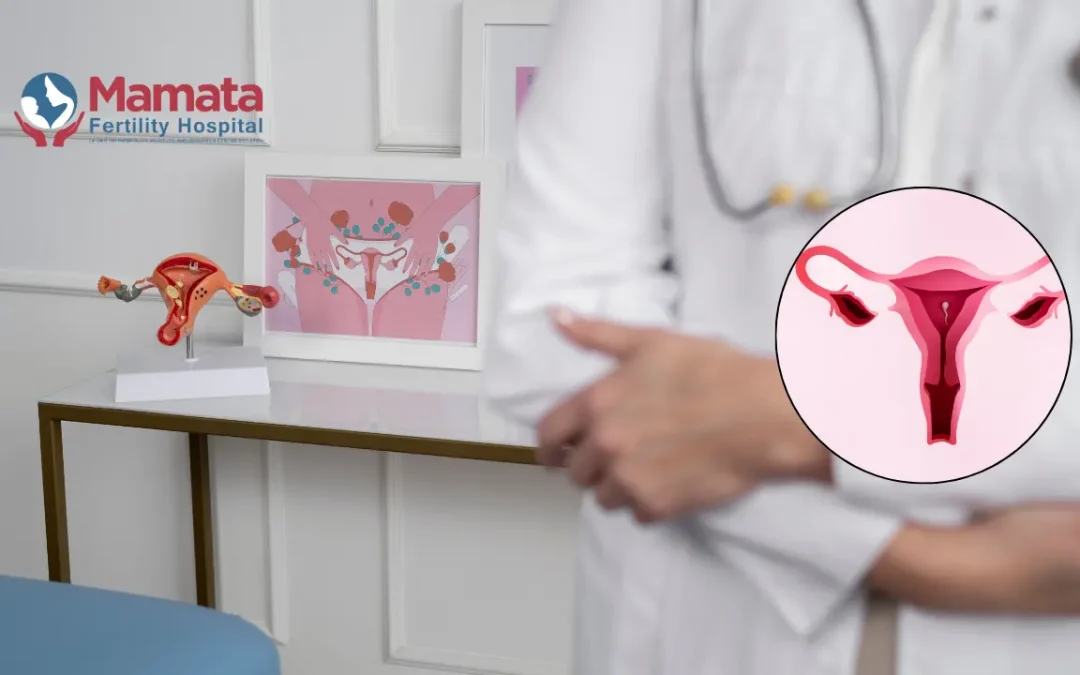Premature Ejaculation
At Mamata Fertility Hospital in Secunderabad, we know that concerns about premature ejaculation (PE) can be deeply personal and distressing. This condition not only affects one’s confidence but may also influence relationships and fertility. Thankfully, with the right care and support, it is a treatable condition.
This article provides a comprehensive guide to understanding premature ejaculation, its causes, symptoms, treatment options, and its broader implications. Additionally, we’ve included an important section on the normal duration of intercourse—a common concern for men with PE.
For Appointments, Please Call:
More On Azoospermia
What is Premature Ejaculation?
Premature ejaculation (PE) is a common sexual dysfunction in men where ejaculation occurs sooner than desired. This may happen before or shortly after penetration, leaving little or no time to satisfy one’s partner. While occasional episodes are normal, persistent issues may require attention.
Types of Premature Ejaculation
- Primary (Lifelong) PE:
- This type persists from the first sexual experience and is often related to biological factors.
- Secondary (Acquired) PE:
- Occurs later in life, often due to medical, emotional, or situational factors.
PE is one of the most frequent sexual concerns among men, and it’s important to know you’re not alone. About 30-40% of men experience PE at some stage in life.

What is the Normal Duration of Intercourse?
One of the most common questions among men with PE is, “What is a healthy or normal duration of intercourse?” While this varies between couples and cultures, scientific studies provide a useful guideline.
Average Timing for Ejaculation
Studies have shown that the normal duration of intercourse, from penetration to ejaculation, is typically around 5-7 minutes.
Key Findings
- A study published in the Journal of Sexual Medicine indicates that the average duration across men globally is 5.4 minutes.
- Any duration less than 1-2 minutes after penetration is often classified as PE.
However, it’s essential to remember that sexual satisfaction doesn’t solely depend on timing. Building intimacy and focusing on mutual satisfaction matters more than adhering to statistical norms.
Causes of Premature Ejaculation
PE can result from a range of physical, psychological, and behavioral factors. Identifying the root cause is crucial for effective treatment.
Common Causes
- Psychological Factors
-
- Performance Anxiety: Fear of not satisfying one’s partner can ironically worsen the problem.
- Stress and Depression: Emotional stress or depressive moods can interfere with sexual confidence.
- Relationship Challenges: Communication gaps or lack of emotional intimacy may contribute to PE.
- Physical or Medical Conditions
-
- Hormonal Imbalances: Abnormalities in serotonin or testosterone levels may affect control over ejaculation.
- Erectile Dysfunction (ED): Men with difficulty maintaining erections often rush to avoid losing it, leading to PE.
- Prostatitis: Chronic inflammation of the prostate gland can contribute to premature ejaculation.
- Thyroid Disorders: Overactive or underactive thyroid glands can interfere with sexual performance.
- Neurological Sensitivities
-
- Increased sensitivity in the penile nerves can make it harder to delay ejaculation.
- Behavioral and Lifestyle Issues
-
- Excessive alcohol or tobacco use, poor sleep, and lack of activity can affect sexual health.
Understanding the contributing factors enables doctors to design a treatment plan tailored to your needs.
Signs and Symptoms
The hallmark of PE is consistently ejaculating within 1-2 minutes during intercourse or earlier than you or your partner desire.
Key Symptoms
- Ejaculation that occurs with minimal stimulation before or during penetration.
- Difficulty controlling ejaculation consistently.
- Feelings of embarrassment, frustration, or guilt.
- Avoidance of sexual intimacy due to dissatisfaction or fear of failure.
PE can place significant strain on relationships and personal mental health if left unmanaged.
Diagnosing Premature Ejaculation
A doctor uses a combination of patient history, physical exams, and lab tests to diagnose PE. Since it’s often multifactorial, accurate diagnosis is key to effective treatment.
Diagnostic Process
- Medical History
- Questions on timing, frequency, and contributing physical or emotional factors.
- Physical Checkup
- Examining for infections, erectile dysfunction, or hormonal imbalances.
- Laboratory Tests
- Blood tests to assess testosterone or serotonin levels.
- Tests to detect thyroid issues or prostate inflammation (if suspected).
Open communication with your doctor is essential during this process, as it helps chart the right course of action.
Treatment Options
The good news is that premature ejaculation is highly treatable with the right combination of medical, psychological, and behavioral interventions.
1. Behavioral Therapy
This involves learning techniques to delay ejaculation through practice and patience.
- Start-Stop Technique: Stopping stimulation as ejaculation nears, then resuming once control is regained.
- Squeeze Technique: Gently squeezing the penis head to reduce arousal and delay release.
2. Pelvic Floor Exercises
Strengthening the pelvic muscles through exercises like Kegels can improve control over ejaculation.
3. Medications
Your doctor may suggest medication to manage PE symptoms effectively.
- Topical Anesthetics (Lidocaine/Prilocaine): Reduces penile sensitivity to delay ejaculation.
- SSRIs (Selective Serotonin Reuptake Inhibitors): Antidepressants like dapoxetine have proven effective for delaying ejaculation.
- Phosphodiesterase-5 (PDE5) Inhibitors: Drugs like sildenafil (Viagra) may be useful when ED and PE coexist.
4. Psychological Counseling
Working with a therapist can address emotional or relational factors contributing to PE. Approaches include:
- Cognitive Behavioral Therapy (CBT): Focuses on changing negative patterns of thought that influence performance.
- Sex Therapy: Helps improve intimacy and communication with your partner.
Lifestyle Adjustments
Improving overall health through stress management, regular exercise, and limiting alcohol or smoking can support sexual health.
5. Hormonal Therapy
If low testosterone is detected, testosterone replacement therapy (TRT) may provide benefits under careful medical supervision.
Impact on Relationships and Fertility
PE goes beyond physical symptoms, often affecting relationships and raising fertility concerns.
Relationship Challenges
- Partners may feel unsatisfied, leading to communication breakdown or resentment.
- Therapy or counseling can help couples rebuild intimacy and mutual satisfaction.
Fertility Implications
While PE doesn’t directly harm sperm quality, it can interfere with conception by limiting the timing or accuracy of sperm delivery. Treatment strategies, including assisted reproduction (IUI or IVF), can help in such cases.
Frequently Asked Questions (FAQs)
1. Is premature ejaculation treatable?
Yes, PE can be effectively managed with therapy, medication, and lifestyle changes.
2. Will reducing nervousness help control ejaculation?
Yes, reducing anxiety and building confidence through therapy or relaxation techniques often improves ejaculation control.
3. Do testosterone levels play a role in PE?
Abnormally low testosterone may be a contributing factor, but it isn’t always the primary cause.
4. Can early ejaculation affect my ability to have children?
PE doesn’t impact sperm health but may reduce chances of conception if ejaculation happens outside the vagina.
5. Are there natural ways to prolong ejaculation?
Yes, practicing techniques like the start-stop method, exercise, and reducing unnecessary stress can help delay ejaculation naturally.
At Mamata Fertility Hospital, our experienced team provides compassionate care and advanced treatment options for men facing premature ejaculation. Don’t hesitate to take the first step toward a healthier, more satisfying sexual life by scheduling a consultation today.
Reviewd By

Dr Aarti Deenadayal Tolani
Clinical Director, Scientific In-Charge & Fertility Consultant
MBBS, MS ( OBGYN), FICOG
Expert in Reproductive Endocrinology, Infertility, Advanced Gynaec Ultrasound, and Faculty at Mamata Fertility Hospital.
Blogs and Articles

Keys to a Successful IUI
Home > Blogs > Keys to a Successful IUIKeys to a Successful IUIFor many couples trying to conceive, the process can be both an emotional and physical rollercoaster. One fertility treatment that has gained popularity due to its efficacy and less invasive nature...

Successful IUI Symptoms and Signs
Home > Blogs > Successful IUI Symptoms and SignsSuccessful IUI Symptoms and SignsFor many couples attempting to conceive, intrauterine insemination (IUI) represents a beacon of hope. But the waiting period after the procedure can feel like an eternity. How do...

Is IUI Procedure Painful?
Home > Blogs > Is IUI Procedure Painful?Is IUI Procedure Painful?Understanding the IUI Procedure What is IUI? Intrauterine Insemination (IUI) is a common fertility treatment that involves placing sperm directly into a woman’s uterus to facilitate fertilization....
RELATED CONDITIONS
- Low Testosterone
- Low Sperm Count (Oligospermia)
- Low Sperm Morphology
- Semen Infections
- Small Testis
- When to Consult Infertility Specialist?

